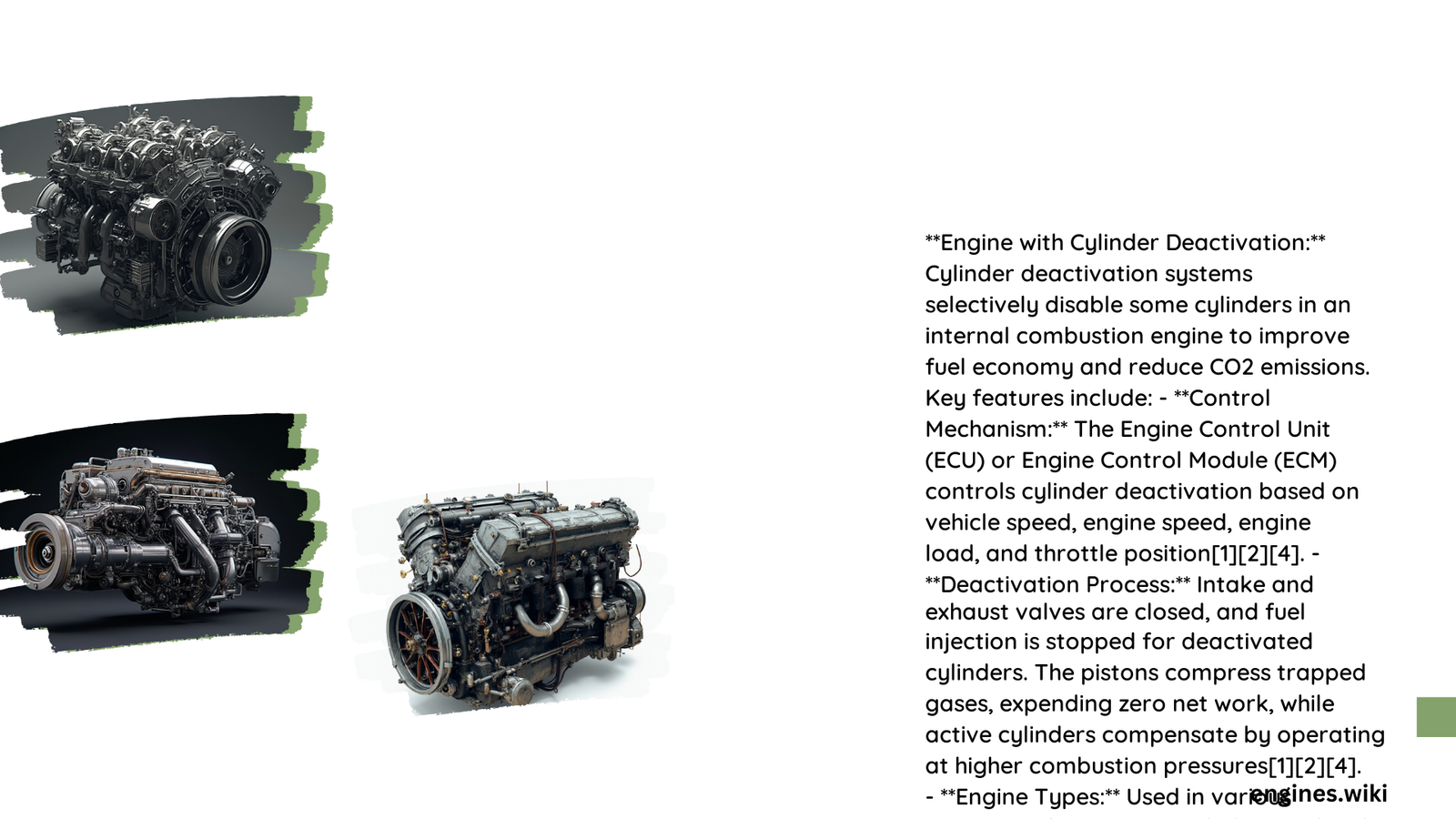Modern automotive engineering has revolutionized fuel efficiency through sophisticated technologies like cylinder deactivation. This innovative approach allows engines to dynamically reduce active cylinders during low-load conditions, significantly improving fuel economy without compromising overall vehicle performance. By selectively deactivating cylinders, vehicles can achieve substantial reductions in fuel consumption while maintaining smooth operational characteristics.
What is Cylinder Deactivation Technology?
Cylinder deactivation represents an intelligent engine management strategy where specific cylinders are temporarily disabled during low-power driving scenarios. This technology enables engines to optimize fuel consumption by reducing unnecessary energy expenditure.
How Does Cylinder Deactivation Work?
Mechanism of Cylinder Shutdown
- Hydraulic Valve Control: Uses high-pressure oil to collapse valve lifters
- Electronic Solenoid Management: Controlled by Engine Control Module (ECM)
- Seamless Transition: Rapid activation/deactivation without performance interruption
Which Engines Utilize Cylinder Deactivation?
| Manufacturer | Engine Models | Cylinder Configuration |
|---|---|---|
| Mazda | SKYACTIV-G 2.5L | 4-Cylinder |
| General Motors | V6/V8 Engines | 4-6 Cylinders |
| Honda | Accord, Odyssey | V6 Engines |
| Volkswagen | Polo BlueGT | 4-Cylinder |
What Are the Primary Benefits?
- Fuel Efficiency Improvements
- 7.5% to 20% reduction in fuel consumption
- Minimized pumping losses
-
Reduced mechanical friction
-
Performance Maintenance
- Consistent horsepower output
- Smooth operational transitions
- Minimal impact on driving experience
What Challenges Exist?
Technical Limitations
- Potential increased component wear
- Complex hydraulic and electronic systems
- Higher maintenance requirements compared to traditional engines
Performance Considerations
- Slight potential for vibration during cylinder transitions
- Increased mechanical complexity
- Potential long-term reliability concerns
What Technologies Enable Cylinder Deactivation?
- Advanced Hydraulic Lifters
- Precision Electronic Solenoids
- Sophisticated Engine Control Modules
- Adaptive Transmission Systems
Who Benefits Most?
- Drivers seeking improved fuel economy
- Environmentally conscious consumers
- Fleet management operations
- Urban and highway drivers experiencing variable load conditions
Conclusion

Cylinder deactivation represents a significant advancement in automotive engineering, offering a pragmatic approach to improving fuel efficiency without sacrificing performance. As technology continues evolving, we can expect increasingly sophisticated implementations of this innovative strategy.
